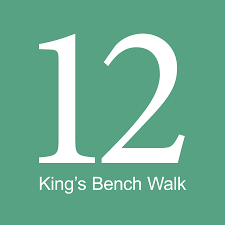*/


Rhys Davies is an international criminal law and international human rights barrister. Ben Keith is an international criminal law, extradition, immigration and human rights barrister. Rhys has taken on pro bono work on and off throughout his career, but in the last few years he has seen more and more people falling through the through the cracks in the justice system and he has become increasingly conscious of his ability to help those in need. Ben accepts pro bono work that he finds interesting and in order to put his skills to use in different areas of work. He has undertaken pro bono work since his early years of practice.
In 2019 Ben and Rhys founded International Human Rights Advisors to support their practices focusing on international human rights law and campaigns. They say:
‘We have seen an enormous increase in the last few years in the numbers of individuals who have been subject to some of the worst international criminal law and human rights violations, stranded without any real representation or assistance. We know that from time to time individuals, some of whom have found themselves in the most dire of circumstances, won’t have easy access to lawyers.
‘It was in those sorts of circumstances that we recognise that it is essential that we were able to commit the time and energy to helping people, whatever their means.
‘Both in our individual practices, and collectively through our team at IHR Advisors, we try to provide as much help as we can to pro bono clients who may be struggling to progress their case at an international level.
‘For example, a typical recent case is that of our client Dr Acléo Kalinga, a Rwandan refugee who was kidnapped, detained and tortured in Uganda between 2005 and 2009 and subsequently experienced persecution for seeking redress. On a pro bono basis, we have brought a Complaint to the African Commission on Human and People’s Rights.
‘Pro bono cases often arise precisely because they are unusual or difficult and working on these sorts of cases can be deeply rewarding.
‘The case of Ryan Cornelius that we are both currently working is a case in point. Ryan is a British national who has arbitrarily detained in prison in Dubai. He was arrested in 2008 and has been held in custody ever since. Ryan has been the victim of the most egregious human rights breaches imaginable and will almost certainly die in prison unless we can help secure his release.
‘We have been working closely with his family and have asked the UN and the UK and US governments for assistance in his campaign for justice. His case is a perfect example of how pro bono lawyers can try to help those most in need.
‘Our first suggestion for someone thinking of doing pro bono work would be to keep an open mind and be ready to take those first steps to investigate whether or not you can help.
‘We were extremely pleased to be recognised by the Bar Pro Bono Awards for the work we do and are deeply thankful for the attention that the award brings to the plight of our clients.’

Leigh Royall (pictured above left) writes:
I have worked within the legal professions for the past 30 years; 27 of these in chambers in Stoke-on-Trent, Manchester and Leeds. Over recent years, the importance and significance of undertaking pro bono activity for both chambers and individual members of the Bar has increased significantly. This is certainly is the case with my set where these opportunities sit congruently with our values and brand identity. In addition to undertaking cases via Advocate, we also lend our support to Temple Legal Centre with a member of chambers each month conducting a pro bono family law advice clinic.
In order to fully reap the benefits of undertaking any pro bono activity, there needs to be a change in perspective so that clerks approach pro bono work as a tool that will add value for chambers, barristers and also to their own careers.
The benefit for junior barristers in gaining experience of cases is well known. There are also, increasingly, opportunities to be had at a senior level – if clerks are willing to look for them. For example, there’s the value of having a breadth of pro bono work on your CV for silk or judicial appointment. This will enrich those applications. Barristers can now use pro bono cases as excellent evidence for the required competencies.
From a chambers’ perspective, pro bono is good for business, too. It demonstrates your credentials as good people to deal with. The Bar is a people business at the end of the day – and people buy people!
So, how should clerks use pro bono work as a tool to develop themselves and chambers? I’ve found it to be a great way to get introduced to high-value solicitor targets, ie those who are acting on the other side of a case. When we’ve stepped up and taken on high-profile matters, it often makes the job acting for the other side much easier. The wheels of justice turn more smoothly when all parties are represented. Opposing solicitors in these cases do recognise this help and, more importantly, they remember you.
For me, this also ties into practice development meetings with members. When you sit down with barristers, as a clerk, you are there to help and advise not only on their day-to-day practice, but also to support their longer-term career goals. I like to seek ways for them to add value and raise their profile within their field of specialism and the wider environment too. Quite often this can be in the form of pro bono activity.
For junior clerks, as they develop, they should be moving towards ‘the bigger picture’ – from simply maximising short-term productivity in filling the diary day-to-day to looking for longer-term career development opportunities.
Pro bono can even help in respect of members’ wellbeing. For example, a case may jump out which is a little bit different from a barrister’s usual day-to-day practice, and add an element of interest. These can be just the tonic sometimes; a change is a good as a rest, as they say!
My advice to clerks, when they receive emails from Advocate, is to make sure you take a moment to cast your eye over the list of cases to see if there is something of note. Advocate might be looking for a specific skill or expertise that your barristers can supply. I might already be scouting for a similar opportunity, as a result of discussions arising from my practice development meetings. I will check the diary of the barrister who has come to mind, as if it was a paid job, and ask if they are available. The message is: the better clerks know their barristers’ wants and needs, the better positioned they are to help find these opportunities. The same as with paid work.
Clerks can also be proactive in finding other sources of pro bono activity. Advocate is the organisation that many of us know, but there are many other schemes which may sit closer to the opportunities that you seek. Some of the other schemes have links on Advocate’s website.
Look into chambers’ alignment with groups close to your usual areas of practice. Think about organisations who could potentially become intervenors or get interested party status in the cases that you do. Make yourself known to them; they may just have that next reported case you are looking for.
Once clerks change their perception of the value that can be gained from pro bono activities, there is an abundance of opportunity upon which to seize.

Elizabeth Boulden of 12KBW writes:
12KBW is proud to have won Pro Bono Chambers of the Year 2021: we recognise the crucial role that pro bono work plays in the legal sector and its importance in giving people access to justice. Often, a pro bono client will not have yet had the benefit of a barrister, so not only will they have had the difficulty of the initial legal issue they are facing, but also the challenge of representing themselves. In such cases, it is very meaningful to be able to give these clients the specialist advice and representation that they so clearly need. In particular, chambers’ specialisms which lend themselves to pro bono are employment law, personal injury and inquests. Pro bono is also a way in which members of chambers can get involved in more diverse practice areas and work on particularly challenging and interesting cases. For example, barristers who tend to act for defendants or respondents in their usual cases can have the opportunity to act for claimants in pro bono work, allowing such practitioners to gain a different perspective. More junior members have the chance to take on lengthier cases, as well as those in appellate courts: in particular, barristers at 12KBW have acted pro bono in the Employment Appeal Tribunal, and, in previous years, in the Court of Appeal. Highlights of our recent pro bono work include: a six-day Medical Practitioners Tribunal Hearing, a multi-day inquest where there was a finding of unlawful killing, being led in a successful appeal to the Employment Appeal Tribunal in a whistleblowing claim, and a sensitive data case for a highly vulnerable claimant.
The pandemic provided more of an opportunity for members of chambers to get involved in pro bono – due to the change in the way court hearings were conducted, practitioners could use gaps in their diaries to take on pro bono cases. There was also potentially a greater need for pro bono representation as a result of the pandemic, with many individuals finding themselves with a sudden change of circumstances. The change in working practices to online papers and virtual hearings has also made it easier for barristers to get involved in pro bono work.
We would encourage any barrister thinking of taking on pro bono work to do so. It provides for an interesting practice and allows practitioners to use their skills for the benefit of those who might otherwise not have access to legal advice. In current times, it seems likely that the need for pro bono work will continue, and, therefore, the opportunities to get involved are likely to remain. Hopefully, this year, we can encourage even more members of chambers to take on pro bono cases.


Rhys Davies is an international criminal law and international human rights barrister. Ben Keith is an international criminal law, extradition, immigration and human rights barrister. Rhys has taken on pro bono work on and off throughout his career, but in the last few years he has seen more and more people falling through the through the cracks in the justice system and he has become increasingly conscious of his ability to help those in need. Ben accepts pro bono work that he finds interesting and in order to put his skills to use in different areas of work. He has undertaken pro bono work since his early years of practice.
In 2019 Ben and Rhys founded International Human Rights Advisors to support their practices focusing on international human rights law and campaigns. They say:
‘We have seen an enormous increase in the last few years in the numbers of individuals who have been subject to some of the worst international criminal law and human rights violations, stranded without any real representation or assistance. We know that from time to time individuals, some of whom have found themselves in the most dire of circumstances, won’t have easy access to lawyers.
‘It was in those sorts of circumstances that we recognise that it is essential that we were able to commit the time and energy to helping people, whatever their means.
‘Both in our individual practices, and collectively through our team at IHR Advisors, we try to provide as much help as we can to pro bono clients who may be struggling to progress their case at an international level.
‘For example, a typical recent case is that of our client Dr Acléo Kalinga, a Rwandan refugee who was kidnapped, detained and tortured in Uganda between 2005 and 2009 and subsequently experienced persecution for seeking redress. On a pro bono basis, we have brought a Complaint to the African Commission on Human and People’s Rights.
‘Pro bono cases often arise precisely because they are unusual or difficult and working on these sorts of cases can be deeply rewarding.
‘The case of Ryan Cornelius that we are both currently working is a case in point. Ryan is a British national who has arbitrarily detained in prison in Dubai. He was arrested in 2008 and has been held in custody ever since. Ryan has been the victim of the most egregious human rights breaches imaginable and will almost certainly die in prison unless we can help secure his release.
‘We have been working closely with his family and have asked the UN and the UK and US governments for assistance in his campaign for justice. His case is a perfect example of how pro bono lawyers can try to help those most in need.
‘Our first suggestion for someone thinking of doing pro bono work would be to keep an open mind and be ready to take those first steps to investigate whether or not you can help.
‘We were extremely pleased to be recognised by the Bar Pro Bono Awards for the work we do and are deeply thankful for the attention that the award brings to the plight of our clients.’

Leigh Royall (pictured above left) writes:
I have worked within the legal professions for the past 30 years; 27 of these in chambers in Stoke-on-Trent, Manchester and Leeds. Over recent years, the importance and significance of undertaking pro bono activity for both chambers and individual members of the Bar has increased significantly. This is certainly is the case with my set where these opportunities sit congruently with our values and brand identity. In addition to undertaking cases via Advocate, we also lend our support to Temple Legal Centre with a member of chambers each month conducting a pro bono family law advice clinic.
In order to fully reap the benefits of undertaking any pro bono activity, there needs to be a change in perspective so that clerks approach pro bono work as a tool that will add value for chambers, barristers and also to their own careers.
The benefit for junior barristers in gaining experience of cases is well known. There are also, increasingly, opportunities to be had at a senior level – if clerks are willing to look for them. For example, there’s the value of having a breadth of pro bono work on your CV for silk or judicial appointment. This will enrich those applications. Barristers can now use pro bono cases as excellent evidence for the required competencies.
From a chambers’ perspective, pro bono is good for business, too. It demonstrates your credentials as good people to deal with. The Bar is a people business at the end of the day – and people buy people!
So, how should clerks use pro bono work as a tool to develop themselves and chambers? I’ve found it to be a great way to get introduced to high-value solicitor targets, ie those who are acting on the other side of a case. When we’ve stepped up and taken on high-profile matters, it often makes the job acting for the other side much easier. The wheels of justice turn more smoothly when all parties are represented. Opposing solicitors in these cases do recognise this help and, more importantly, they remember you.
For me, this also ties into practice development meetings with members. When you sit down with barristers, as a clerk, you are there to help and advise not only on their day-to-day practice, but also to support their longer-term career goals. I like to seek ways for them to add value and raise their profile within their field of specialism and the wider environment too. Quite often this can be in the form of pro bono activity.
For junior clerks, as they develop, they should be moving towards ‘the bigger picture’ – from simply maximising short-term productivity in filling the diary day-to-day to looking for longer-term career development opportunities.
Pro bono can even help in respect of members’ wellbeing. For example, a case may jump out which is a little bit different from a barrister’s usual day-to-day practice, and add an element of interest. These can be just the tonic sometimes; a change is a good as a rest, as they say!
My advice to clerks, when they receive emails from Advocate, is to make sure you take a moment to cast your eye over the list of cases to see if there is something of note. Advocate might be looking for a specific skill or expertise that your barristers can supply. I might already be scouting for a similar opportunity, as a result of discussions arising from my practice development meetings. I will check the diary of the barrister who has come to mind, as if it was a paid job, and ask if they are available. The message is: the better clerks know their barristers’ wants and needs, the better positioned they are to help find these opportunities. The same as with paid work.
Clerks can also be proactive in finding other sources of pro bono activity. Advocate is the organisation that many of us know, but there are many other schemes which may sit closer to the opportunities that you seek. Some of the other schemes have links on Advocate’s website.
Look into chambers’ alignment with groups close to your usual areas of practice. Think about organisations who could potentially become intervenors or get interested party status in the cases that you do. Make yourself known to them; they may just have that next reported case you are looking for.
Once clerks change their perception of the value that can be gained from pro bono activities, there is an abundance of opportunity upon which to seize.

Elizabeth Boulden of 12KBW writes:
12KBW is proud to have won Pro Bono Chambers of the Year 2021: we recognise the crucial role that pro bono work plays in the legal sector and its importance in giving people access to justice. Often, a pro bono client will not have yet had the benefit of a barrister, so not only will they have had the difficulty of the initial legal issue they are facing, but also the challenge of representing themselves. In such cases, it is very meaningful to be able to give these clients the specialist advice and representation that they so clearly need. In particular, chambers’ specialisms which lend themselves to pro bono are employment law, personal injury and inquests. Pro bono is also a way in which members of chambers can get involved in more diverse practice areas and work on particularly challenging and interesting cases. For example, barristers who tend to act for defendants or respondents in their usual cases can have the opportunity to act for claimants in pro bono work, allowing such practitioners to gain a different perspective. More junior members have the chance to take on lengthier cases, as well as those in appellate courts: in particular, barristers at 12KBW have acted pro bono in the Employment Appeal Tribunal, and, in previous years, in the Court of Appeal. Highlights of our recent pro bono work include: a six-day Medical Practitioners Tribunal Hearing, a multi-day inquest where there was a finding of unlawful killing, being led in a successful appeal to the Employment Appeal Tribunal in a whistleblowing claim, and a sensitive data case for a highly vulnerable claimant.
The pandemic provided more of an opportunity for members of chambers to get involved in pro bono – due to the change in the way court hearings were conducted, practitioners could use gaps in their diaries to take on pro bono cases. There was also potentially a greater need for pro bono representation as a result of the pandemic, with many individuals finding themselves with a sudden change of circumstances. The change in working practices to online papers and virtual hearings has also made it easier for barristers to get involved in pro bono work.
We would encourage any barrister thinking of taking on pro bono work to do so. It provides for an interesting practice and allows practitioners to use their skills for the benefit of those who might otherwise not have access to legal advice. In current times, it seems likely that the need for pro bono work will continue, and, therefore, the opportunities to get involved are likely to remain. Hopefully, this year, we can encourage even more members of chambers to take on pro bono cases.


The Bar Council is ready to support a turn to the efficiencies that will make a difference
By Louise Crush of Westgate Wealth Management
Marie Law, Director of Toxicology at AlphaBiolabs, examines the latest ONS data on drug misuse and its implications for toxicology testing in family law cases
An interview with Rob Wagg, CEO of New Park Court Chambers
What meaningful steps can you take in 2026 to advance your legal career? asks Thomas Cowan of St Pauls Chambers
Marie Law, Director of Toxicology at AlphaBiolabs, explains why drugs may appear in test results, despite the donor denying use of them
Ever wondered what a pupillage is like at the CPS? This Q and A provides an insight into the training, experience and next steps
The appointments of 96 new King’s Counsel (also known as silk) are announced today
Ready for the new way to do tax returns? David Southern KC continues his series explaining the impact on barristers. In part 2, a worked example shows the specific practicalities of adapting to the new system
Resolution of the criminal justice crisis does not lie in reheating old ideas that have been roundly rejected before, say Ed Vickers KC, Faras Baloch and Katie Bacon
With pupillage application season under way, Laura Wright reflects on her route to ‘tech barrister’ and offers advice for those aiming at a career at the Bar